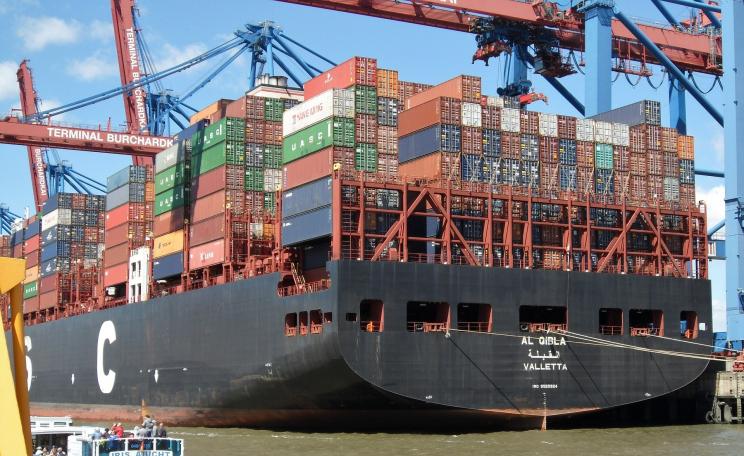-
Campaigners will challenge the Department for International Trade in court on Thursday 12 December over its failure to release full details of dozens of post-Brexit trade talks. The hearing takes place on the day of the UK elections.
The papers, including the redacted minutes of US-UK negotiations which became a major political issue during the General Election, were released to campaign group Global Justice Now in heavily redacted form earlier this year.
But campaigners claim the blacked out documents are an affront to democracy, arguing that the far-reaching implications of trade deals today necessitate high levels of transparency and scrutiny which the Government is blocking.
Trade meetings
The case, brought by Leigh Day and Brendan Montague, then director of Request Initiative and now editor of The Ecologist, on behalf of campaign group Global Justice Now, will attempt to force the Department for International Trade to release details of trade meetings which have taken place with 21 countries including the United States, Saudi Arabia, Turkey, China and India.
Global Justice Now requested the papers under Freedom of Information law back in 2017, but the Government refused to release any information until an appeal to the Information Commissioner in March 2019 resulted in the release of hundreds of pages of documents.
They were either entirely or heavily redacted on the basis of a variety of exemptions, including the ‘extremely sensitive’ nature of international trade agreements.
Some of these redacted papers were held up by Labour leader Jeremy Corbyn in the first General Election leaders debate. Leaked versions of the papers were later found to reveal that the NHS, British food standards, and the government’s ‘right to regulate’ could all be undermined by a trade deal with the US.
The campaigners will be represented on Thursday by Sam Fowles of Cornerstone Barristers.
Scrutiny
The challenge will be heard in the First-tier Tribunal, to be held at Field House, Breams Buildings, in London, on 12 and 13 December 2019.
Nick Dearden, director of Global Justice Now, said: “Trade deals are supposedly the number one benefit of Brexit, yet the government has fought tooth and nail to keep plans for them out of the public domain.
"In the case of the US deal, we now know why: because the US administration is pushing hard to gain greater access to our NHS, to push lower standard food on us post-Brexit, and to hamper our ability to tax and regulate giant Silicon Valley corporations.
"But we’ve only skimmed the surface of what’s out there. We also want to know what they’re discussing with a range of other countries including Saudi Arabia, Turkey, China.
"In a democracy, we must have the right to scrutinise what our government is trading away in our name.”
Public interest
Brendan Montague said: “The public interest in this case could not be clearer, or more urgent. This speaks to the future of the NHS, the most important and most valued institution we have in this country.
"It also speaks to issues that impact on millions of people’s lives: climate change, food safety standards and pesticides.
"It now seems absolutely irrefutable that the public needs to be aware of what is being negotiated on their behalf, and also know whether politicians including Boris Johnson are telling the truth about what is being sold, and what is being protected, in negotiations with the US and other countries."
Transparency
Rowan Smith, human rights solicitor at Leigh Day, said: “Our clients have been fighting since 2017 for transparency in negotiations of post-Brexit trade agreements. We are arguing before the Information Tribunal that the Department for International Trade has wrongly assessed the public interest in transparency and the value of public scrutiny in these negotiations.
"It is seriously concerning that the public has to rely on leaks to have any real insight as to the kinds of deals being negotiated on their behalf. Parliament brought in the Freedom of Information Act precisely for this reason.
"Government departments should not be allowed to evade their obligations under this crucial Act.”
This Author
Marianne Brooker is The Ecologist's content editor. This article is based on a press release from Global Justice Now.







